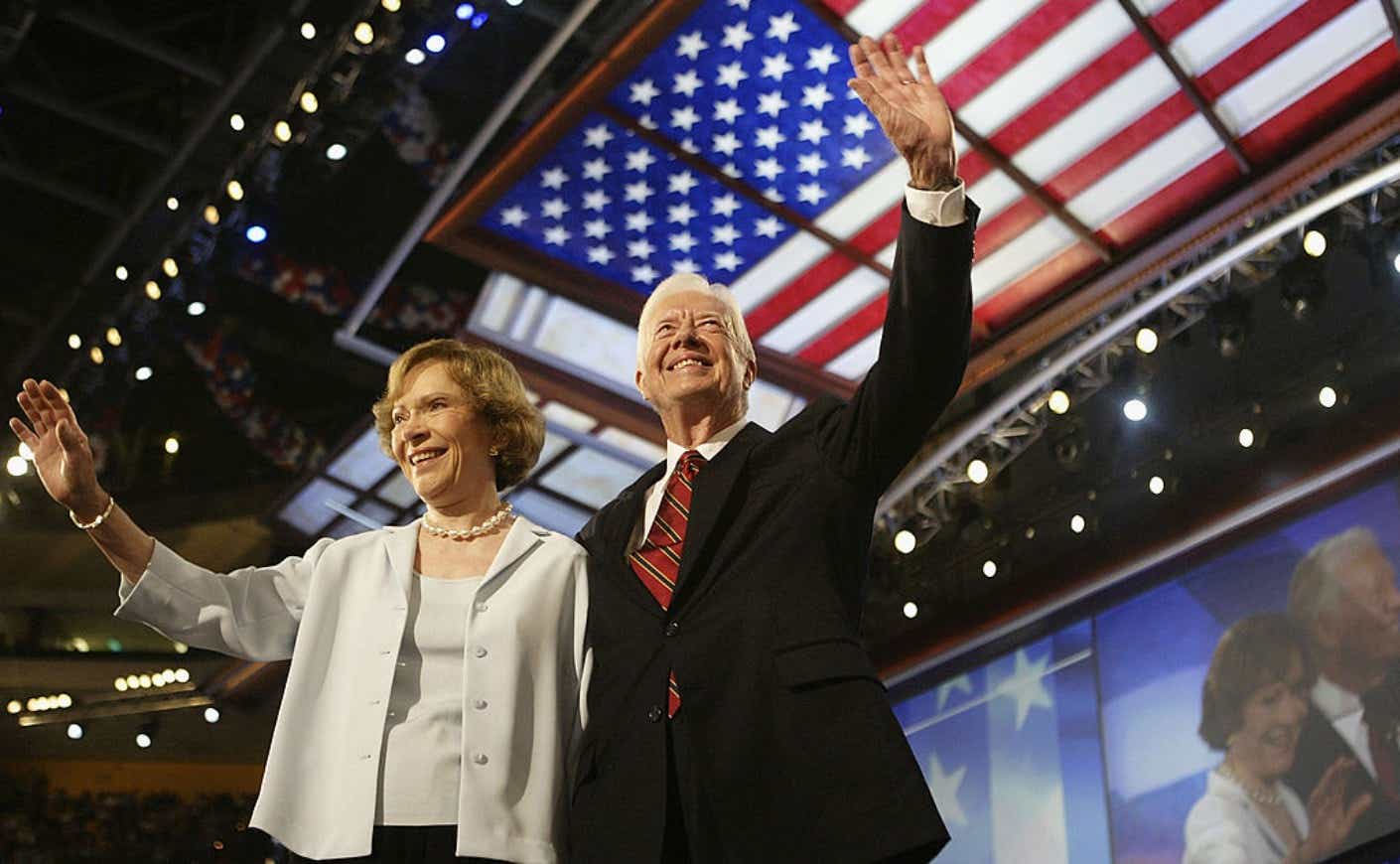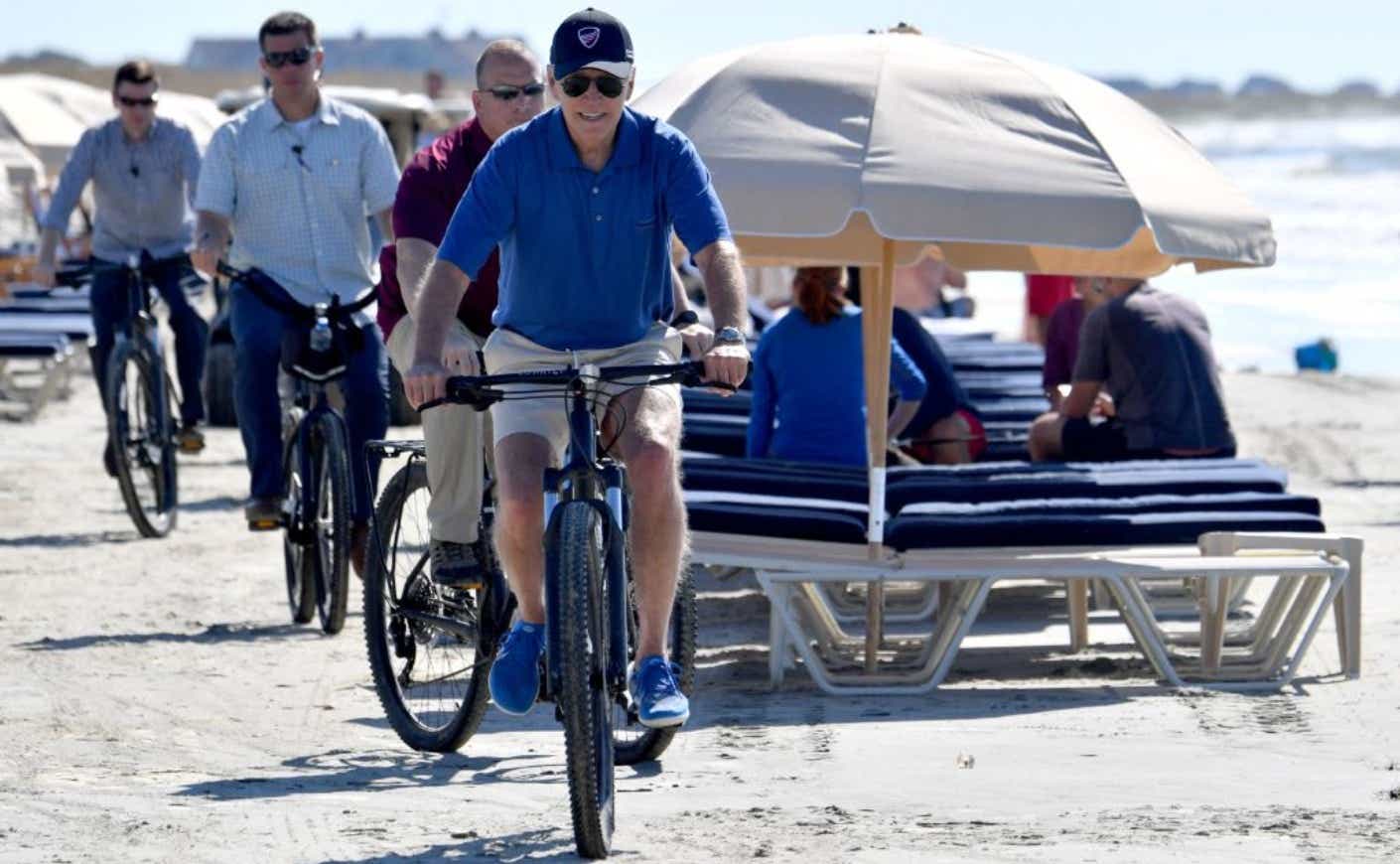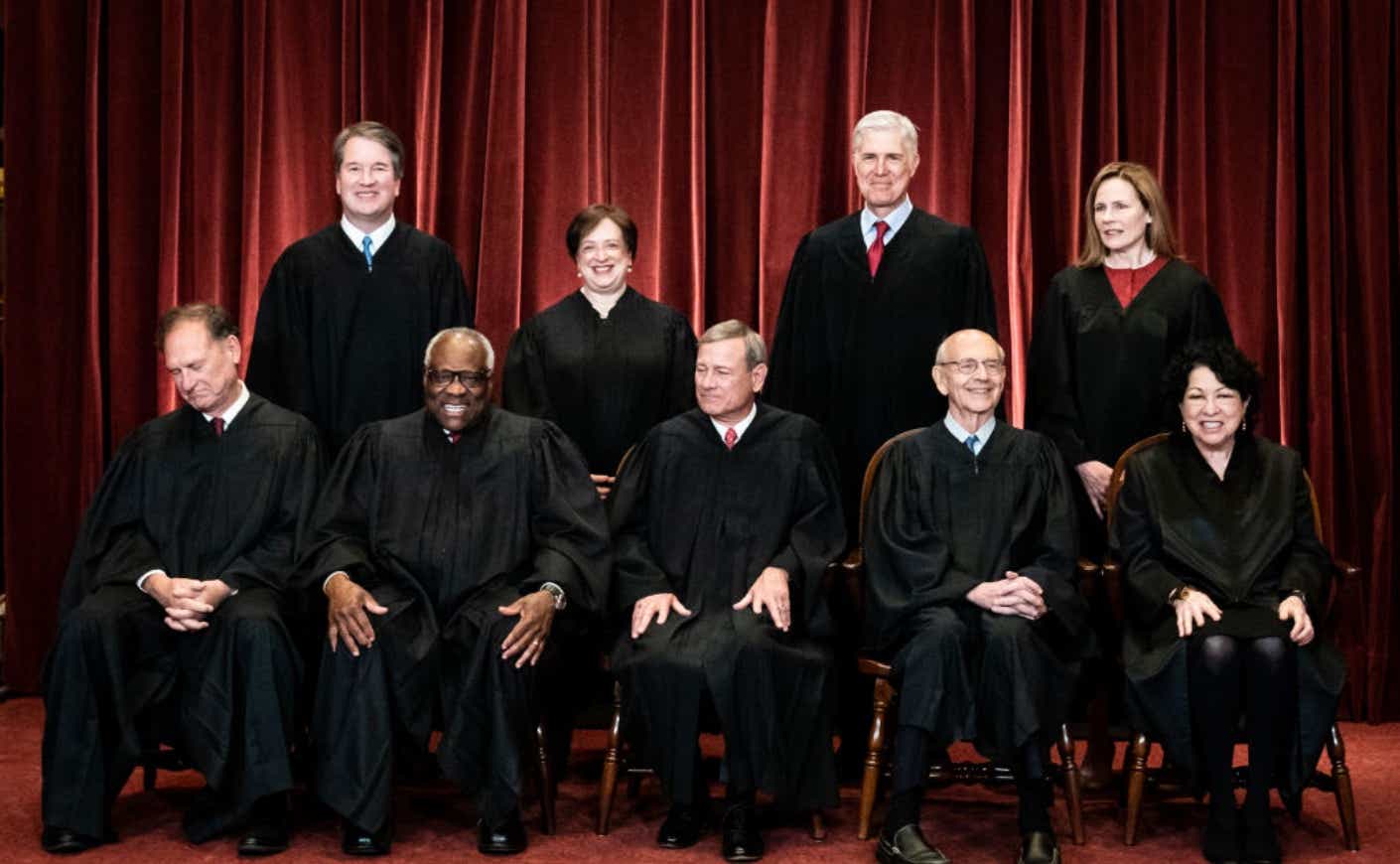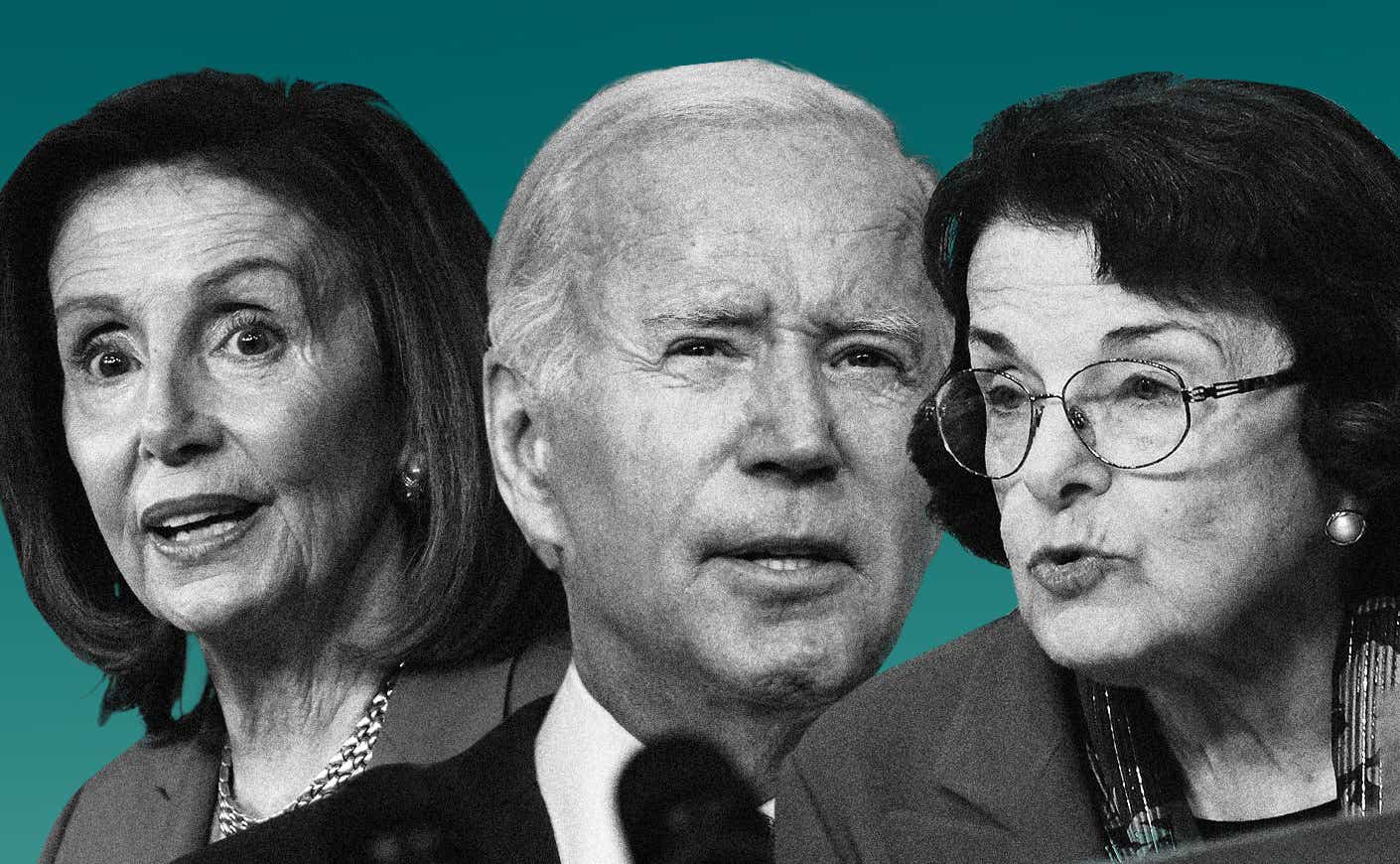Even though Americans’ life expectancy has dropped in recent years due to the brutal repercussions of Covid-19, humans are nonetheless living longer than previous generations. That also means the average person is working longer — the average age of retirement is now 66, up from age 57 in 1991, according to a Gallup poll. But is there such a thing as being too old when it comes to holding some of the highest public offices in the land?
It’s a thorny debate. Many Americans argue that age is just a number, and there are plenty of examples of luminaries who live robust lives into the triple-digits. But there’s also a growing contingent of voters who have doubts about whether someone born during World War II can realistically be tapped into our nation’s modern needs — especially while staring down the unfortunate realities of late-in-life cognitive decline.
To better understand this complicated conversation, we took a deep dive into the age of the politicians we’ve elected, what science says about their ability to lead, and the proposals for managing how long they serve.
Who are the oldest people in office in the U.S.?
Younger generations have increased their representation in recent years, but the generational gap in Congress is still all too real: According to a recent analysis from the Congressional Research Service, our current batch of national lawmakers is setting records as the oldest in two decades. In the Senate, the average age has reached 64, and while the House of Representatives’ average is slightly lower at 58, Baby Boomers (the generation born between 1946 and 1964) account for more than 50 percent of its voting membership.
But the upper echelon of Congressional leadership is actually much older than those averages. To name a few: Senate Minority Leader Mitch McConnell is 80, House Speaker Nancy Pelosi is 82, and Sen. Chuck Grassley is 88. The distinction of oldest senator goes to 89-year-old Dianne Feinstein of California, who was born in 1933 — the year construction began on the Golden Gate Bridge.
Presidents are also now getting elected later in life. President Donald Trump was the oldest to take office at 70 years old in 2017, though his record was promptly surpassed by his successor, President Joe Biden, who took office at age 78 in 2021. If Biden were to win a second term in 2024, he’d be 86 by the time he left the White House.
This generational gap took center stage during the Democratic primaries leading up to the 2020 election, with former President Jimmy Carter (elected president at 52 years old; currently 97) joking in 2019 about the age of certain presidential candidates. “I hope there is an age limit,” Carter said. “If I were just 80 years old — if I was 15 years younger — I don’t believe I could undertake the duties I experienced when I was president.”

At the time, then-presidential candidate Pete Buttigieg shot down the idea that age should be a factor: “I don’t care how old you are — I care about your vision,” he said during a Democratic debate. (But it’s worth noting that as the youngest Democrat in the race, the then-37-year-old may have had his own motivations for that viewpoint.)
How does aging affect someone’s ability to lead?
It’s a question that’s been asked many times — including by members of Congress themselves.
Republican Sen. Bill Cassidy, who is 64 years old, recently suggested that elderly congress members undergo regular cognitive tests. “At some point, and statistically it’s in the 80s, you begin a more rapid decline,” Cassidy, a gastroenterologist, told Axios on HBO last year. “So anybody who’s in a position of responsibility who may potentially be on that slope, that is of concern, and I’m saying this as a doctor.”
Meanwhile, Republicans have repeatedly called for President Biden to undergo a similar test over questions about his health, though White House physician Kevin O’Connor reports that the president “remains fit for duty.”

Analyzing the longevity of presidents is a key area of study for Stuart Jay Olshansky, a professor of public health at the University of Illinois at Chicago. He tells KCM that not everyone ages at the same rate, and therefore it’s important to distinguish between chronological age — the actual number of years a person has been alive — and biological age, which takes into account genetics and how the body’s held up to external factors like diet and lifestyle choices.
“It’s perfectly possible to make it out to President Biden’s age and be President of the United States and do just fine,” Olshansky says, “but unfortunately, I see age being weaponized by both sides of the aisle, and it’s really harmful.”
What does the law (and the American public) say about the age of politicians?
The legal parameters on this matter are more about creating a floor than a ceiling. The Constitution’s age requirements for federal office require a candidate to be 35 years old to run for president, 30 to run for Senate, and 25 to run for the House. But as of now, there is no maximum age for serving in the federal government — which could perhaps be attributed to the fact that the average life expectancy at the time the Constitution was written was in the mid-30s.
But now that Americans can expect to live more than twice that long, some worry that the government has become a gerontocracy, a government ruled by people who are significantly older than the rest of the population.
According to a recent CBS News/YouGov poll, a strong majority of Americans — 73 percent — support creating a maximum age limit for elected officials. Of those polled, most said that 70 years old would be an appropriate cut-off for holding office. What’s notable is that despite an ever-polarizing political environment, this sentiment was shared by a majority of voters across party lines — 64 percent of Republicans and 57 percent of Democrats supported limiting the age of our leaders. There’s also unity on this issue across respondents both young and old. In fact, 74 percent of those aged 65 and over favor creating maximum age limits for officials, compared to 68 percent of 18- to 29-year-olds.
Can we (and should we) create a legal age limit?
The concept of creating age limits for important and demanding professions is nothing new.
While the State Department requires foreign services officers to step down at age 65, some local law enforcement agencies, like the New York State Police, mandate that new applicants be under the age of 30. Similarly, the Federal Aviation Administration mandates that pilots retire at 65, even after medical reports concluded that age had an “insignificant impact” on their performance in the cockpit. (Congress has tried to raise this retirement age to 67 following a serious shortage of pilots over the summer.)
Though health concerns are valid especially in these consequential roles, some worry that creating maximum age limits for politicians might actually promote age discrimination. Olshansky points out that preventing ageism in most professions is actually codified in law, citing the Age Discrimination in Employment Act, which specifically forbids discrimination against people who are 40 or older.
“The upper age limit is a different animal,” he tells us. “Now you’re talking about whether or not somebody is capable of doing their job just based on their chronological age.”
Richard Lau, a professor of political science at Rutgers University, says one possible solution to avoid potentially discriminatory laws would be to create more term limits at the federal level. While presidents are only allowed to serve eight years, there aren’t any limits on how long members of Congress or Supreme Court justices can serve.

This might be a promising avenue worth exploring — after all, the idea of creating congressional term limits has gained momentum in years past. Republicans made a big push in the 1990s to pass a constitutional amendment that would’ve limited representatives to six two-year terms and senators to two six-year terms. But when that ultimately failed, 23 states enacted laws limiting their own members of Congress, though the Supreme Court has since overturned these limits. But some have still been able to retain some of these measures on the local level, and 36 states have term limits on their governors.
So what would it actually take to get such an amendment passed? Per the Constitution, Congress has could make changes in one of two ways: A two-thirds vote of approval by both the House of Representatives and the Senate, or a national convention called for by a two-thirds vote from state legislatures. But no matter which route lawmakers take, the amendment would then have to be ratified by three-fourths of states.
Though creating term limits on all elected officials has proven challenging, Lau believes it would help with the divisive political environment of the moment, especially when it comes to appointments on an increasingly controversial governmental body, the Supreme Court.
“I could imagine a rule that Supreme Court justices are appointed not for life, but for 18 years, and in an ideal world, where the terms were staggered so that every two years, one person would retire and a new justice would have to be appointed. Such a system might remove a bit of the politics around the current way we do this,” Lau tells KCM. “All we would have to do to adopt such a procedure would be to amend the Constitution.”
Ultimately, time will tell whether creating these kinds of limits will gain traction — but what we do know is this issue isn’t going away anytime soon, especially amid new science that suggests humans could live as long as 150 years.
But Olshansky says the bottom line is age shouldn’t be the only factor determining whether anyone can adequately do their job: “We’ve been battling against ageism since the term was coined in the 1970s, and while these questions should come up, it’s also important that we realize what the consequences are if we try to impose age limits on just about anything.”









